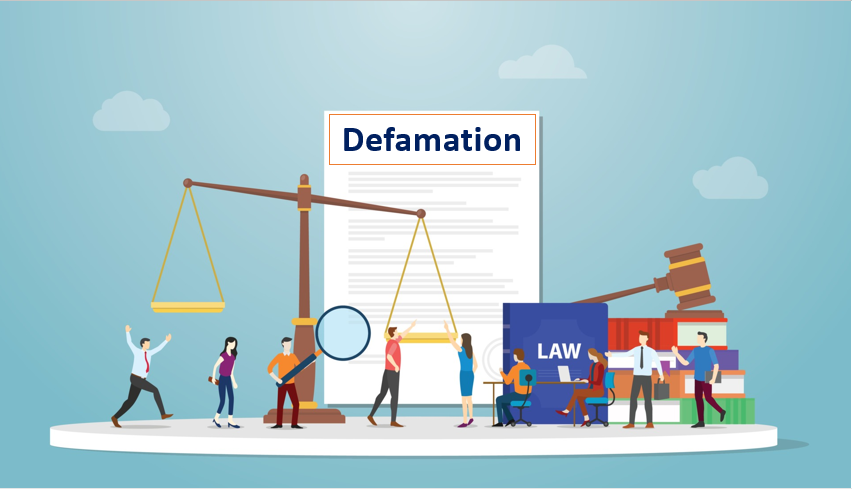Published On: 14th August, 2024

Introduction:
Arbitration is fundamentally a consensual conflict resolution process in which the parties agree to bring disagreements between them to an arbitral tribunal for adjudication, whether under the provisions of existing commercial contracts or investment treaties. Parties can also refer existing issues to arbitration using the applicable “arbitration activity,” which establishes the subject matter of the dispute.
Arbitration is also procedurally flexible, allowing parties to engage in an efficient, confidential, and fair procedure aimed at producing a final, binding, and enforceable decision.
In this article, we will discuss the definition of arbitration, the features of arbitrators to use, Introduction to Confidentiality in Arbitration, The Importance of Confidentiality in Arbitration, Confidentiality vs. Transparency, Case Study Highlighting Confidentiality That leads to Transparency in Arbitration, Actions performed when the arbitrator violates the confidentiality clause, The conclusion and finally, the references.
The Definition of Arbitration:
Highlights the value of arbitration as a preferred method of resolving disputes resulting from contracts in general, and construction contracts in particular. Arbitration offers benefits not available in the judiciary, making it a viable option for resolving construction contract disputes. In the last quarter of the 20th century, arbitration became widely accepted as an optimal dispute resolution method.
Arbitration can be defined as a legal system in which a binding decision is reached in a legal dispute between two or more parties by a person or individuals other than those whose work is derived from the parties’ agreement.*1
We can also define it as an agreement between or authorized by two parties that any dispute between them or that may arise as a result of a contractual or non-contractual relationship will be submitted to one or more arbitrators without recourse to the ordinary court in order to be resolved by a binding judgment between the litigants.
Features of Arbitrator to Use:
The arbitrator possesses attributes that separate him from any other lawman tasked with the task of adjudicating disputes before him, such as transparency, impartiality, competency, impartiality, and legal reliance on the decisions he pronounces.
Arbitrator should perform his functions without undue delay and give equal opportunity to both the parties, Arbitrator should studying the statement of claims, counter-claims, defence, rejoinders and other pleadings carefully. An arbitrator must also ensure confidentiality in all the dealings that happen in the arbitration room.*2
The previously given features for arbitration are impartiality, secrecy and privacy of information, and the names of the parties to the dispute. Many of the tests and training courses that a lawyer does in order to enter the area of arbitration first, and then the Court of Arbitral Judges second. There are methods and studies for the arbitrator’s competency, whether personal competence in dealing with disputes or professional competence in his judgments and the manner of terminating the dispute before him.
Introduction to Confidentiality in Arbitration:
Confidentiality is intended to limit the publication of sensitive material and the influence of public opinion on the dispute before the arbitral panel. Only the parties to an arbitration agreement may attend hearings and participate in arbitration processes, which distinguishes confidentiality from privacy. Privacy protects against third-party intrusion in procedures. Confidentiality relates to the parties’ responsibilities not to be disclosed information about arbitration procedures to third parties.
The Importance of Confidentiality in Arbitration:
Importance was that arbitration proceedings must be place in closed session (i.e., the public is not permitted to attend), and arbitration provisions shall not be publicized as a general rule. As a result, the facts of conflicts are not made public, allowing commercial contacts between the parties involved to continue.
Parties can ensure arbitration confidentiality by including a confidentiality clause in their arbitration agreement or by selecting an arbitral institution whose arbitration rules require confidentiality throughout the procedure. There are several institutional standards that specifically address confidentiality.
Confidentiality vs. Transparency:
Transparency requires a new principle that contradicts the norm of confidentiality. Privacy in arbitration, essentially, permitting other parties such as NGOs and civil society organisations to enter and participate in arbitration processes.*3
This occurs in specific instances, such as when the State or a public institution is a party to the dispute or if the issue relates to public funds, as well as in sensitive cases. Insolvency, which must be reported in accordance with the democratization theory, provides the general public and the media with the right to participate in arbitration processes, resulting in great openness and clarity over the confidentiality and privacy clauses in arbitral proceedings.
With modern technology and the introduction of some contracts, such as technology transfer contracts, and with regard to investment arbitration, transparency is appropriate for that type of contract and the disputes arising therefrom, where the terms of the contract and obligations can be seen by specialists in this area, and the presence of technical experts makes the arbitral tribunal’s judgment certain and precise of the status of the dispute. Nonetheless, most foreign investors do not consider this issue, preferring the confidentiality of arbitration to protect their own technical and technological secrets in their contested firm.
It does not follow that because openness has been added in some arbitral cases, the arbitration’s essential advantage of confidentiality and privacy is absent in arbitral procedures. Arbitral proceedings must be transparent, depending on the type and parties involved, whether the case concerns public order and finance, and the amount of investment in the case. Is the public entitled to see the arbitral award or not.
Case Study Highlighting Confidentiality That leads to Transparency in Arbitration:
The notion of open justice may imply that the presence of arbitration, the names of the parties, and maybe the award itself will become public information. However, some courts conceal the parties’ identities in order to maintain confidentiality. Manchester City Football Club Limited v Premier League Football Association Limited [2021] 1 WLR 5513 is a recent case in which arbitration parties were disclosed. The English Court of Appeal allowed the unredacted publication of a preliminary ruling rejecting appeals against the arbitration judgment.*4
Despite both sides’ objections, the court determined that publishing would not reveal sensitive classified information and would satisfy the public’s interest in how disputes between the Premier League and its member football clubs were settled.
Actions performed when the arbitrator violates the confidentiality clause:
“If the arbitrator fails to do so, or if there is a Legal or factual impediment to the performance of those functions, applicable
Proceedings concerning objection to the arbitrator provided for in article 13″.*5
The adversaries may request a change of arbitrator if they can demonstrate that he was not impartial or not considered confidential. Once this is established, a decision will be made to recuse that arbitrator and replace him with another arbitrator, with the judge deciding whether the new arbitrator should start the arbitration proceedings from the beginning or continue with the previous arbitrator’s submission in the arbitrator’s case.
Conclusion:
Arbitration has evolved into an irreversible movement, and it is no longer conceivable that varied issues will be resolved through arbitration. Individuals, as well as national and international agencies, are eager to bring their conflicts before an arbitral tribunal in order to reap the full benefits of arbitration, which include speed, confidentiality, specialization, and customization to the parties’ requirements. Arbitration, in addition to being a specific mechanism intended at settling individual disputes and accomplishing a type of special justice free of the proceedings and regulations of state law. It is a special judiciary and a customized instrument for adjudicating a dispute that is produced in each case according to the individual needs of the conflict, Confidentiality is a core element of international business arbitration and remains one of the primary draws for individuals who choose this method of resolving disputes.
The purpose of this article is to discuss arbitration in general, and its procedures in particular. In the essay, we discussed these molecules:
- Arbitration is a preferred method for resolving disputes arising from contracts, particularly construction contracts.
- Arbitrators possess unique attributes such as transparency, impartiality, competency, and legal reliance on their decisions.
- Confidentiality in arbitration aims to limit sensitive material publication and public opinion influence, requiring parties to attend hearings and participate in processes.
- Confidentiality can be ensured by including a confidentiality clause in agreements or selecting an arbitral institution with confidentiality-specific rules.
- Transparency in arbitration requires a new principle that contradicts confidentiality norms. Privacy in arbitration allows other parties, such as NGOs and civil society organizations, to participate in processes.
- Case Study Highlighting Confidentiality That leads to Transparency in Arbitration.
- Arbitrators can request changes if they believe the arbitrator was not impartial or confidential.
Arbitration is a dispute settlement procedure in which the disputing parties appoint and accept the arbitrator. Arbitration is a specific procedure that results in a final and executive decision determining the parties’ rights and duties. Arbitration communicates the parties’ express pleasure with the outcome of the dispute, as well as the parties’ explicit consent required. I propose writing a large number of legal articles that are easy to consult and reliable to the source.
Both articles explain the distinction between transparency and confidentiality and state that there is no reason why both characteristics cannot exist concurrently in the arbitral processes of the arbitral dispute under consideration. Refugees understand what must be kept confidential and what must be valid in accordance with the norm of confidentiality and transparency in arbitration processes.
References:
1– Fouchard (Philippe) & Gaillard (Emmanuel) & Goldman (Berthold): Paris 1996 -no 7P 11-12.
2- The Concept And Practice Of Arbitration DR. (CA) RAJKUMAR S. ADUKIA. No 79- 80.
3- Hakeem Seriki, Confidentiality in Arbitration Proceedings: Recent Trends and Developments, J.Bus. L 2006 p 295.
5- United Nations Commission on International Trade Law، UNCITRAL Rules Arbitration (2021) p 11. Article: 12.



